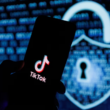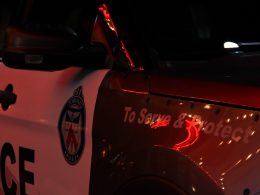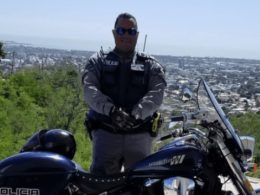OPINION | The opinions expressed in this article are that of the writer, and may not necessarily reflect those of Tatum Report LLC
When you decided to carry insurance for your house, did you ever review the past 10 or 20 years, find you’ve never had to use your homeowner’s insurance, so you decided you no longer need it and scrap your policy? No? It’s not a great idea, right?
But this is what many Democrat-run cities, including Seattle, want to do by creating unarmed response units, or “violence interrupters,” who would deal with many calls formerly handled by armed police officers. The scope spans from mental health and drug addiction to even minor traffic offenses.
They’re pouring over past calls to see what calls “didn’t need” an armed response. But going over incident histories is the point. You can’t know a call won’t need an armed response until afterward. And this is happening even as criminals are escalating the violence, including with firearms, to historic levels.
The mired-in-leftist-ideology, anti-police mayor, Jenny Durkan, says, “Tackling gun violence has no easy solutions.” No “easy solutions?” Well, you can’t do it by not enforcing laws, but that’s exactly what the city’s been doing during her disastrous tenure.
Then Durkan dribbles more of the usual leftist pablum about taking guns off the streets… blah, blah, blah. It’s the same nonsense spouted by so many Democrats who are also lousy at running city governments. Many other American cities have more guns and less crime (which, by the way, is the title of an essential book by John Lott) than Seattle.
Are cops armed because they “need” their guns on every call? Does a repair person carry a hammer because he or she will “need” a hammer for every repair? No, on both counts. They both have those tools just in case they’re needed.
People who have a pathological fear of firearms, looking back over incident histories to decide which calls don’t “need” armed responses, is not an effective strategy. Most police officers will never fire their guns in the line of duty. And, often, when they do, they weren’t expecting to have to shoot their weapons.
This does not mean officers did not “need” their firearms. Their guns are there just in case. Just like the person who has had homeowner’s insurance for 20 years, but they’ve never “used” it, does not mean they didn’t “need” it. They had insurance, again, just in case. Insurance serves a purpose just by existing and being in force.
Again, as with the homeowner ecstatic about having insurance when something catastrophic happens, officers are similarly excited to have had their firearms available when catastrophe hits.
Believe it or not, what complainants tell 911 operators, which dispatchers then relay to officers, is not always (often) accurate. This is an inescapable glitch in unarmed response or violence interrupter planning. Officers have responded to robberies that turn out to be simple thefts and parking complaints that morphed into homicides.
I once responded to an incident where the dispatcher reported a woman was sobbing while reporting some kind of disturbance in her apartment. The dispatcher broadcasted she was finally able to calm the woman.
When we arrived, we saw a man flipping through a checkbook, a bloody knife lay on the kitchen counter next to him, and the woman was on the floor with multiple stab wounds. “Murder” was our “disturbance.”
I’ll ask just one question. If you were dispatched to a supposed mental health or drug addiction-related call with the potential of it becoming immediately violent, would you rather need a gun and not have one or have a gun and not need it? The answer should be simple. If it’s not, you need to examine your priorities.
Mental health and addiction-related calls are some of the most unpredictable and potentially dangerous, even deadly, calls to which officers respond. And despite the leftist myth that an armed cop will “exacerbate” a situation, in my experience, cops calm situations much more often than they inflame them.
In my first book, Is There a Problem, Officer? (The Lyon’s Press, 2007), I answered this question: “Hey, officer, have you ever used your gun?” Answer: “Yes. I use my gun every day.” Just like my homeowner’s insurance, whether in my holster or in my hand, I used it for peace of mind for those just in case moments.
Follow Steve Pomper and Tatum Report on Twitter
- Manhattan Democrat DA Alvin Bragg Mocks American Criminal Justice System - March 31, 2023
- Leftist Trans and Gun Control Activists Invade Tennessee Capitol - March 31, 2023
- Biden, KJP Blame Law-Abiding Gun Owners for Demented Woman’s Carnage - March 30, 2023










